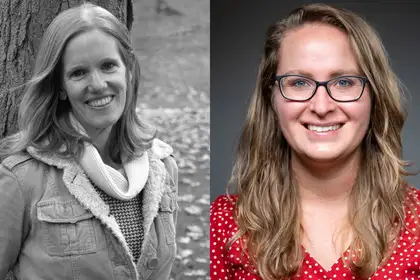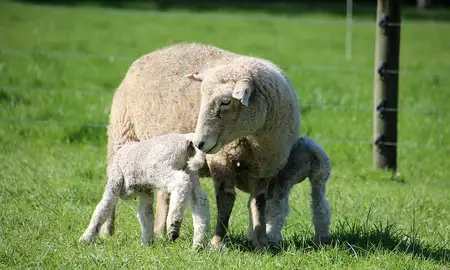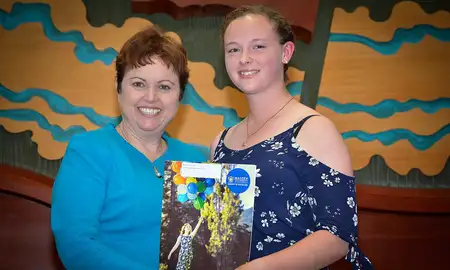
Dr Alice Beban (left) and Dr Cadey Korson.
Sustainable land use is a controversial subject that excites strong opinions, leaving little or no room for a meeting of minds.
But that may be about to change, thanks to a new research project led by School of People, Environment and Planning Senior Lecturers Dr Cadey Korson and Dr Alice Beban, along with their academic colleagues Professor Jonathan Procter and Dr Janet Reid.
The six-month 'think piece' project Building a Place-based Social License to Operate is funded by a $130,000 grant from Our Land and Water, and is one of 11 National Science Challenges focusing on issues of national importance.
Dr Korson says she saw the call for submissions when she and Alice had been finishing a second paper on The Spatial Awareness Project, a film and podcast series exploring land use and environmental issues.
That initial project grew out of the observation that some students, across varying disciplines, were having trouble understanding perspectives that differed from their own, especially around agriculture, food production and forestry.
“Our goal was always to create something that would spark conversations – conversations between people and groups that had seemingly very different ideas about how land and water should be used. Applying for the grant seemed like an obvious next step to see how we might facilitate those conversations," Dr Korson says.
Dr Beban says that while talk of an urban/rural divide in New Zealand is played up in the media, the reality is much more complex.
“Even within the farming community there are really diverse views. Where we saw commonalities was in the sense that there’s been a lot of squeeze in the model of productivist farming. So many people are in debt. They feel a financial squeeze while trying to enact changes on farms to improve sustainability, and view the environmental regulations they are dealing with as another source of stress and pressure.”
She adds that some farmers decided they didn’t want to be filmed as part of the initial project out of concern about how their farming practices might be viewed or interpreted by the wider public.
“There was a kind of distrust or unease. This is people trying to make a difference in their farming practices, but feeling they’re being misinterpreted or misunderstood. Among our urban students we had this sense that things have changed in the environment – this issue of not being able to swim in the rivers – and feeling that farmers are not making real change. The urban students feel frustrated and not able to engage with what’s going on. So rather than this tension and mistrust, we’d like to engage people in new conversations that are not about talking past or blaming each other.”
The proposed format for the new 'think piece' evolved from discussions with Professor Procter and Dr Reid. Dr Reid had worked with the agrifood industry, while Professor Procter had experience in Social License to Operate, the concept of bottom-up community engagement built on top-down corporate social responsibility, in mining and fisheries.
The project will survey a cross-section of people across urban and rural New Zealand to identify underlying worldviews informing their understandings of food production, sustainability, and environmental and social drivers of change, and to gauge interest in various tools for connecting farmers and consumers.
Alongside this survey, qualitative interviews will provide a deeper understanding, with select survey participants representing a diverse public. The survey includes a word-cloud based methodology developed in the United States.
“It’s based on the idea that sometimes we use the same words, like sustainability or social justice, but we are not really speaking the same language. The words are often used without really understanding where the other person is coming from and what kind of worldview they hold,” Dr Beban says.
Put simply, participants will be asked what terms such as ‘sustainability’ mean to them. Responses will be collated in a word cloud, revealing where commonalities exist. These can then be employed as a way of bringing people of divergent opinions closer together.
Dr Korson says they hope the word cloud and subsequent survey questions and interviews with key individuals or groups from the broader community will produce a set of recommendations on how people can connect.
“We’ll hold at least one public screening of a mini-documentary encompassing some of the content from our interviews, followed by a panel discussion with the audience," she says.
An interactive mobile art installation will also be created based on graphics illustrating the word cloud responses. People will be invited to contribute their own reactions on post-it notes.
Longer term, the plan is to use the project as a basis for applying for a larger grant to create and test out a set of resources designed to help people reach some common ground.
Dr Korson says that while not everyone will see eye to eye, there is still hope that compromise can be sought and ultimately people can work towards the same goals and achieve them together rather than separately.
Related news
Massey urges sustainable farming entries
Massey University is encouraging the cream of the crop in sustainable farming to put their best foot forward with entries for the 2018 Ballance Farm Environment Awards now open in 11 regions around New Zealand.

Scholarships provide boost for Ag-hort students
More than 100 agriculture and horticulture students have received scholarships from local organisations, donors and trusts to support their study at Massey.
